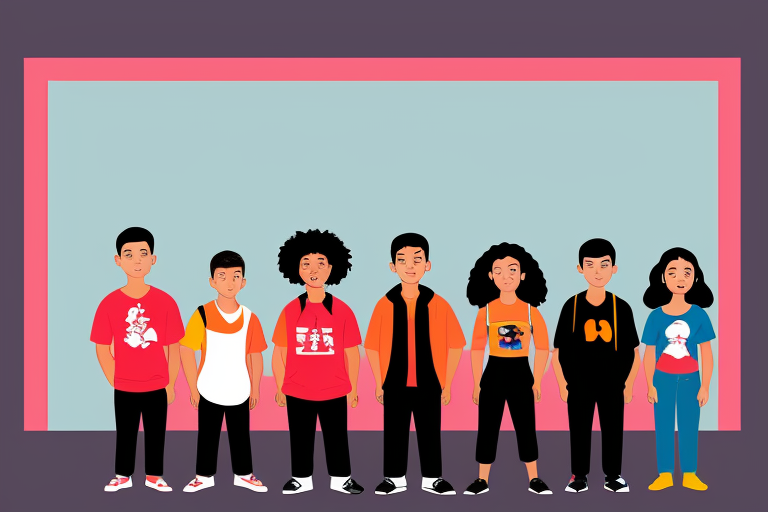The Rise of Youth in Politics
In recent years, there has been a noticeable increase in the number of young people getting involved in politics. From youth-led protests to young political candidates running for office, it’s clear that the younger generation is eager to make their voices heard and shape the political landscape of their countries.
This surge in youth political engagement is important for several reasons. First, young people bring fresh perspectives and innovative ideas to the table. They are often more in touch with the issues that affect their generation and can offer unique solutions to these problems. Additionally, young leaders can inspire other young people to get involved in politics and become the next generation of leaders.
In this article, we will explore the role of social media in youth political engagement, the growing political ambition in youth, the unique challenges faced by young leaders in politics, and the opportunities available to them. We will also highlight some of the most prominent young political leaders who are making an impact in their countries and beyond. By the end of this article, readers will have a better understanding of the significance of youth in politics and the potential they hold for shaping the future of our world.
But first, let’s dive into the role of social media in youth political engagement.
The Power of Social Media in Youth Political Engagement
Social media has revolutionized the way we communicate and interact with each other, and politics is no exception. Platforms like Twitter, Facebook, and Instagram have become powerful tools for political engagement, allowing individuals to share their views and connect with others who share their beliefs. Social media has also played a crucial role in shaping political discourse, allowing marginalized groups to amplify their voices and hold those in power accountable for their actions.
For young people, social media has been a game-changer in terms of political engagement. According to a 2018 survey by the Pew Research Center, 36% of Americans aged 18-29 say they have used social media to post about political or social issues, compared to just 19% of those aged 30 and older. This disparity highlights the unique role that social media plays in youth political engagement.
One of the most significant impacts of social media on youth political engagement is its ability to mobilize young people around specific issues and causes. In recent years, we have seen numerous examples of youth-led political campaigns that have gained traction on social media. For instance, the #NeverAgain movement, which was started by survivors of the Parkland school shooting, gained widespread attention on social media and led to a national conversation about gun control.
Social media has also been used to hold judges accountable for their decisions. In 2019, Judge James Uvanni of Connecticut came under fire after he sentenced a young man to 10 years in prison for stealing a pair of sneakers. The sentence sparked outrage on social media, with many calling for Uvanni’s removal from the bench. The case highlights the power of social media to hold those in power accountable for their actions.
Despite its many advantages, social media also has its drawbacks when it comes to political engagement. One of the most significant disadvantages is the spread of misinformation and fake news. Social media algorithms are designed to show users content that aligns with their beliefs, which can lead to the spread of false information. Additionally, social media can be a toxic environment, with users often resorting to name-calling and personal attacks instead of engaging in productive dialogue.
The Rise of Youth Political Ambition
The political landscape is changing, and young individuals are becoming more interested in politics than ever before. This growing political ambition among youth can be attributed to several factors. Firstly, the rise of social media has made it easier for young people to access political information and engage with political issues. Secondly, young people are increasingly aware of the impact that politics has on their lives and the world around them. Finally, the current political climate has motivated many young people to take action and make a difference.
One example of a young political leader who overcame age discrimination is Uvanni, who was elected to office at the age of 23. Despite facing criticism and skepticism from older politicians, Uvanni was able to prove himself and become a successful political leader. This shows that age should not be a barrier to political success, and young leaders should be judged based on their abilities and ideas rather than their age.
Another advantage of having young leaders in politics is their fresh perspective. Young people are not burdened by the same biases and preconceptions as older politicians, and they are more likely to judge policies and decisions based on their merits rather than their political affiliations. This can lead to more innovative and effective policy-making.
There are several examples of young political leaders who have made an impact in their respective countries. One such example is the son of a former political leader who followed in their parent’s footsteps and became a successful political leader themselves. This shows that political ambition can be passed down through generations and that young people can learn from the experiences of their parents.
In addition to these examples, there are many other young political leaders who have made a difference in their communities and countries. These young leaders have shown that age is not a barrier to political success and that young people have a valuable contribution to make to the political landscape.
The Uphill Battle: Challenges Faced by Young Leaders in Politics
Being a young leader in politics can be an uphill battle. Despite their passion and drive, young people often face unique challenges that can make it difficult to succeed. In this section, we will explore some of the most common obstacles that young leaders encounter, and discuss ways to overcome them.
One of the biggest challenges that young leaders face is age discrimination. Many people assume that young people lack the experience and wisdom necessary to be effective leaders. This can be particularly frustrating for young politicians who have worked hard to gain knowledge and experience in their field. Unfortunately, age discrimination can be difficult to overcome, as it is often deeply ingrained in our society.
Another challenge that young leaders face is balancing their political careers with their education. Many young politicians are still in school, and must juggle their coursework with their political responsibilities. This can be a daunting task, as both pursuits require a significant amount of time and energy. However, with careful planning and time management, it is possible to succeed in both areas.
Stereotypes and societal expectations can also be a major obstacle for young leaders. Many people assume that young politicians are inexperienced, impulsive, and unprepared for the demands of political leadership. These stereotypes can be difficult to overcome, but young leaders can prove their worth by working hard, staying focused, and demonstrating their knowledge and skills.
Despite these challenges, there are many opportunities for young leaders in politics. For one thing, younger politicians often bring a fresh perspective and innovative ideas to the table. They are also more likely to connect with younger voters and address their concerns. Additionally, young politicians can help to bridge the gap between different generations and bring about positive change.
In order to succeed as young leaders in politics, it is important to have a strong support system. This can include mentors, advisors, and other experienced professionals who can offer guidance and advice. It is also important to build a strong network of peers and colleagues who can offer support and encouragement.
The Advantages of Youth in Political Leadership
Young leaders bring a fresh perspective to politics, which can lead to innovative and creative solutions to societal issues. They have a unique understanding of the challenges faced by younger generations and can address their concerns in a way that resonates with them. Additionally, young leaders are more likely to embrace new technologies and adapt to changing circumstances, making them well-suited to lead in an ever-evolving world.
One of the most significant benefits of having young leaders in politics is their ability to connect with younger voters. Younger generations are often disengaged from politics, and having leaders who can relate to them can help to increase their participation. Young leaders can use social media and other digital platforms to engage with younger voters and make politics more accessible to them.
Moreover, young leaders can bring a fresh perspective to policy-making. They are not bound by traditional ways of thinking and can approach problems in new and innovative ways. For example, Sebastian Kurz, the Chancellor of Austria, has revitalized conservative politics in his country by adopting a more youthful and modern approach. His leadership style has resonated with younger voters, and he has been successful in attracting new supporters to his party.
Despite the advantages of youth in political leadership, young leaders face unique challenges. They may be discriminated against due to their age and lack of experience, and they may struggle to balance their education with their political careers. Additionally, they may face stereotypes and societal expectations that can be difficult to overcome.
However, the benefits of having young leaders in politics far outweigh the challenges. Their unique perspective and ability to connect with younger voters can lead to a more engaged and participatory democracy. Furthermore, their innovative and creative approach to policy-making can lead to more effective solutions to societal issues.
Young Leaders Making a Difference
The rise of young leaders in politics is a global phenomenon, and these leaders are making a significant impact in their respective countries. Here are four young political leaders who are changing the political landscape in their countries.
Alexandria Ocasio-Cortez: Changing the Face of American Politics
Alexandria Ocasio-Cortez, also known as AOC, is a 31-year-old American politician who has been making waves in the political world since her election to the United States House of Representatives in 2018. AOC is a member of the Democratic Party and represents New York’s 14th congressional district. She is known for her progressive policies, including the Green New Deal, Medicare for All, and tuition-free public college.
AOC has been a vocal advocate for social justice and has used her platform to call attention to issues such as income inequality, climate change, and police brutality. She has also been a target of criticism from conservative politicians and media outlets, but she has remained steadfast in her beliefs and has continued to fight for the causes she believes in.
Jacinda Ardern: Inspiring Compassionate Leadership in New Zealand
Jacinda Ardern is the Prime Minister of New Zealand and the world’s youngest female head of government. She was elected as the leader of the New Zealand Labour Party in 2017 and became Prime Minister later that year. Ardern is known for her compassionate leadership style and her commitment to social justice.
Under Ardern’s leadership, New Zealand has implemented policies such as the Zero Carbon Act, which aims to reduce the country’s greenhouse gas emissions, and the Wellbeing Budget, which prioritizes the well-being of citizens over economic growth. Ardern has also been a vocal advocate for women’s rights and has implemented policies such as paid parental leave and equal pay legislation.
Sanna Marin: Stepping Up as the Youngest World Leader
Sanna Marin is the Prime Minister of Finland and the world’s youngest serving head of government. She was elected as the leader of the Social Democratic Party of Finland in 2019 and became Prime Minister later that year. Marin is known for her progressive policies, including a four-day workweek and a commitment to gender equality.
Marin’s leadership has been tested by the COVID-19 pandemic, but she has remained steadfast in her commitment to protecting the health and well-being of Finnish citizens. She has also been a vocal advocate for climate action and has pledged to make Finland carbon neutral by 2035.
Sebastian Kurz: Revitalizing Conservative Politics in Austria
Sebastian Kurz is the Chancellor of Austria and the leader of the Austrian People’s Party. He was first elected as Chancellor in 2017 and became the world’s youngest serving head of government at the time. Kurz is known for his conservative policies, including a hardline stance on immigration and a commitment to fiscal responsibility.
Under Kurz’s leadership, Austria has implemented policies such as a ban on full-face veils and a reduction in social welfare benefits for immigrants. Kurz has also been a vocal advocate for European unity and has worked to strengthen Austria’s relationships with other European countries.
The Power of Youth in Politics
Young leaders have the potential to make a significant impact on the political landscape. While age discrimination and lack of experience can be challenging, young politicians bring a fresh perspective and innovative ideas to the table. In recent years, we have seen several young politicians make a name for themselves and inspire others to get involved in politics.
One such example is Alexandria Ocasio-Cortez, who at the age of 29, became the youngest woman ever to serve in the United States Congress. Ocasio-Cortez has been a vocal advocate for progressive policies and has used her platform to raise awareness about issues such as climate change and income inequality. Her election in 2018 was a wake-up call for the Democratic Party, and she has since become a prominent figure in American politics.
Another young leader making a significant impact is Jacinda Ardern, the Prime Minister of New Zealand. Ardern became the world’s youngest female head of government in 2017 at the age of 37. She has been praised for her compassionate leadership style and her response to the Christchurch mosque shootings in 2019. Ardern has also been a vocal advocate for issues such as climate change and mental health.
Sanna Marin, the Prime Minister of Finland, is another young leader who is making waves in the political world. At the age of 34, she became the youngest serving world leader in December 2019. Marin has been a vocal advocate for issues such as gender equality and climate change and has been praised for her leadership during the COVID-19 pandemic.
Sebastian Kurz, the Chancellor of Austria, is another young politician who has revitalized conservative politics in his country. Kurz became the youngest Chancellor in Austrian history in 2017 at the age of 31. He has been a vocal advocate for issues such as immigration and has taken a hardline stance on issues such as Islamophobia and terrorism.
These young leaders are just a few examples of the potential that young individuals have in politics. By bringing a fresh perspective and innovative ideas, young politicians can inspire change and make a significant impact on the world. As we look to the future, it is essential to encourage more young individuals to get involved in politics and provide them with the support they need to succeed. With more young leaders taking the helm, the future of politics looks bright.









